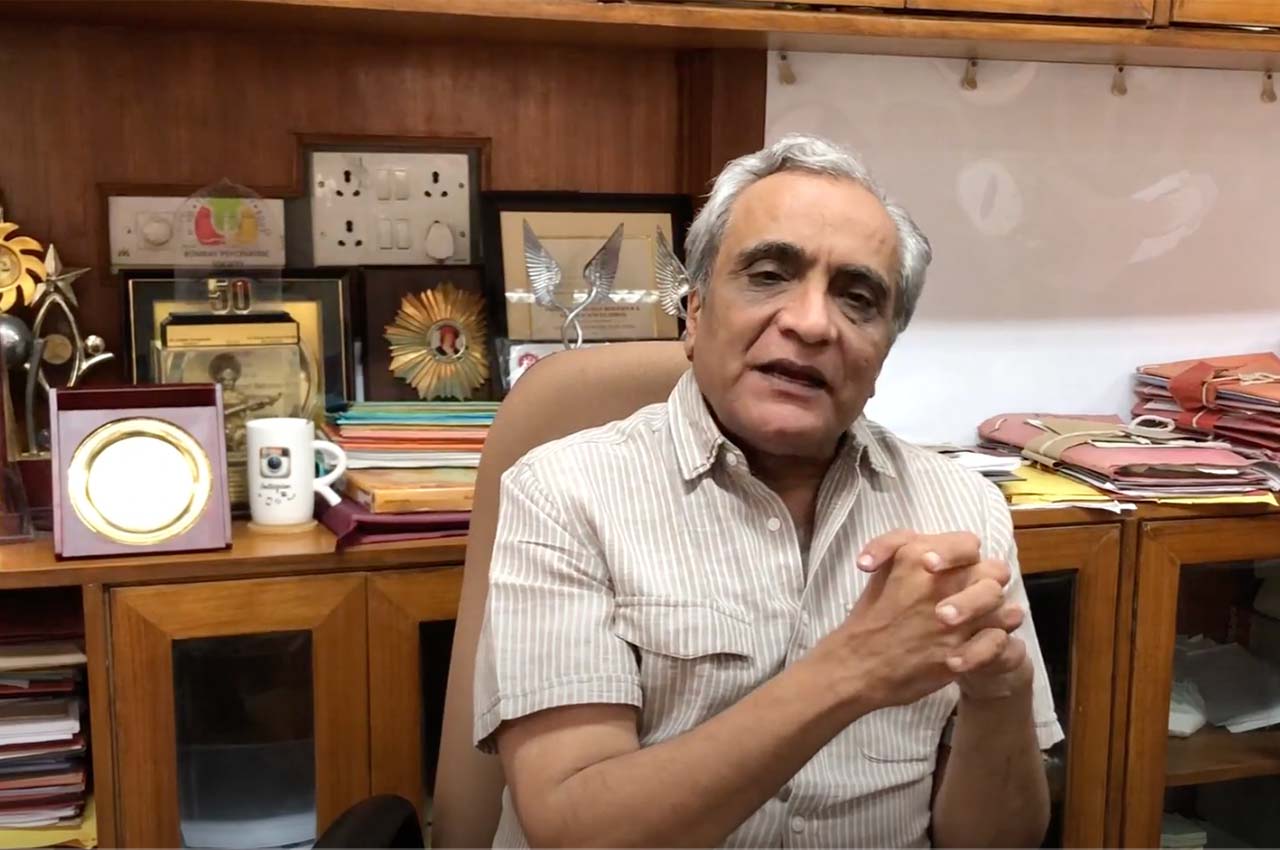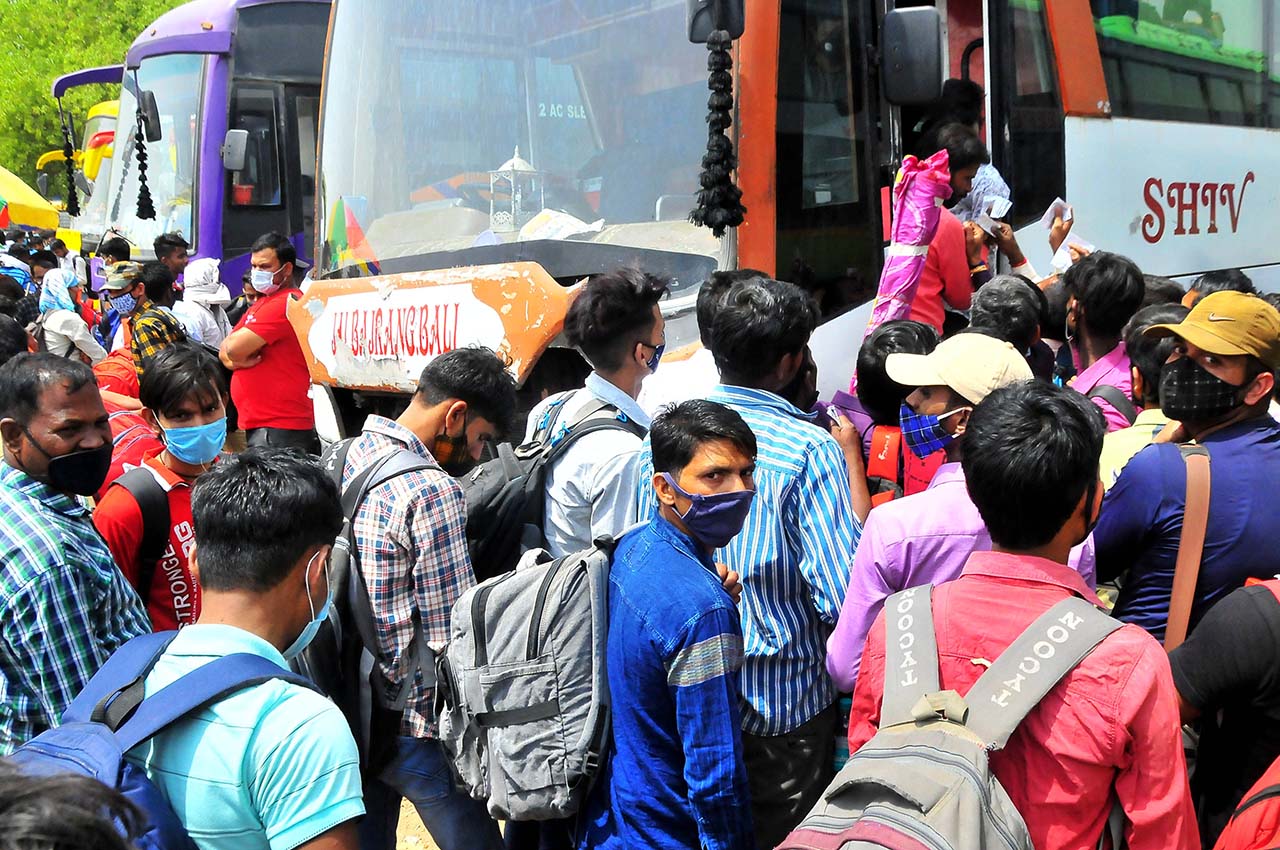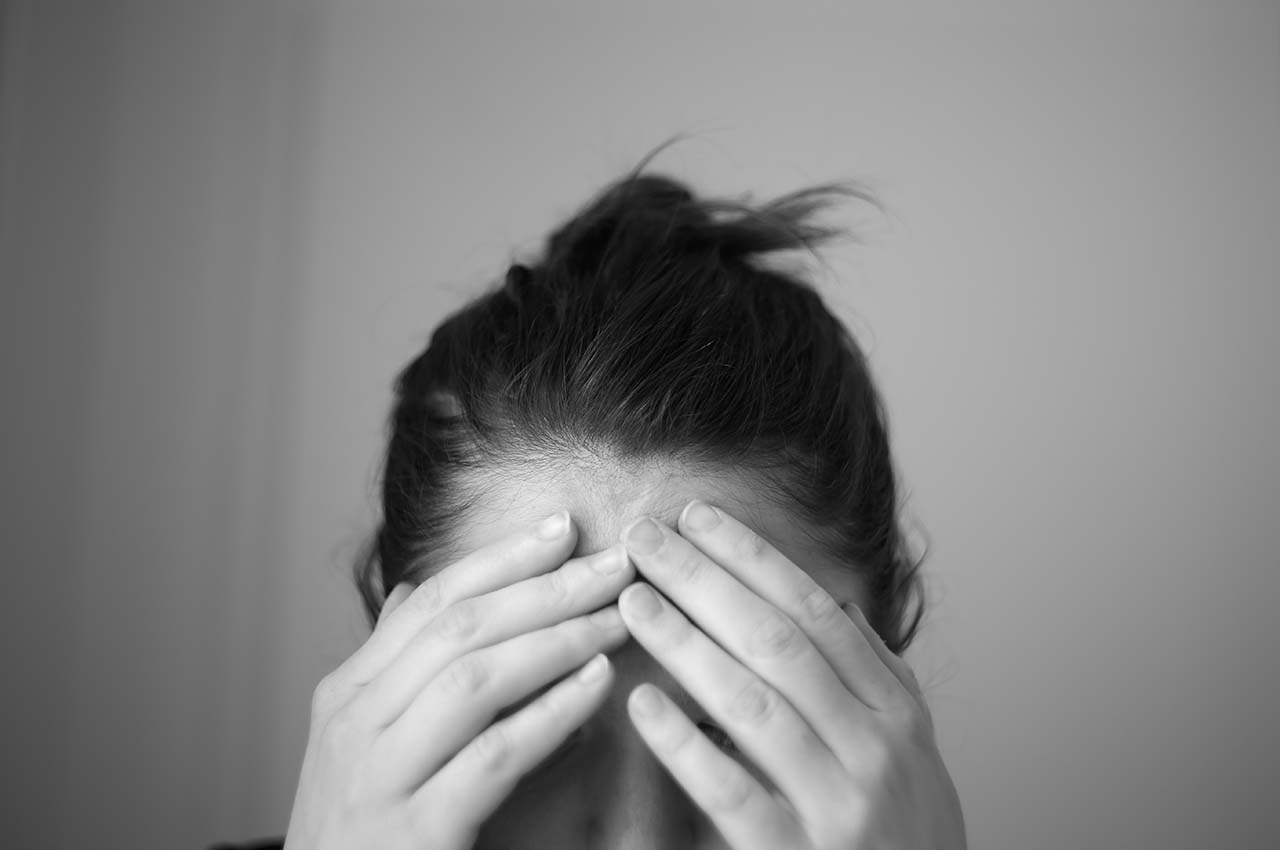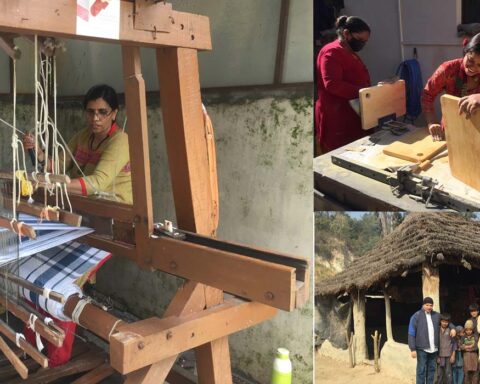Pramod, 31, a factory worker in the Gurugram industrial area, lost his job as soon as the first 21-day lockdown was announced by the government, without any notice, in March 2020 to contain the spread of Covid-19. When the lockdown was announced by Prime Minister Narendra Modi in a nationally televised speech at 8 pm on March 24, 2020, effective from midnight, the total number of positive cases was a little above 500. The abrupt announcement of the lockdown caught the entire country unawares.
The sudden job loss weighed heavily on Pramod’s mind. As his behaviour started becoming erratic, his quarrels with his wife, Sarita, increased in intensity. Their fights became a routine affair that degenerated into physical violence in no time. The husband and wife fought on the smallest of issues, witnessed by their daughter. One day, the situation spun out of control and Pramod, in a fit of rage, murdered his wife and then died by suicide.
The grim household scenario was mirrored in the statement that the daughter gave to the local police that was quoted by The Week: “They were having regular quarrels since last 10 days and had even started hitting each other. Today, they had been fighting since morning. In the evening, my mother said something, and my father rushed to the kitchen in rage. He repeatedly hit her, and she died. He then dragged me to the room and locked me there. He took a bedsheet from the room, which scared me, and I called the police.” By the time police arrived on the scene, Pramod had hung himself with the bedsheet in the bathroom.
Then there is the case of Prasanna and P. Vasantha—who were a happy couple with two children. Prasanna was a government bus driver in Madanayaknahalli in rural Bengaluru. His salary provided a decent life for his wife and two young kids, until he succumbed to Covid-19 in mid-2020. His sudden death upended the family’s existence, bringing acute financial distress and causing Vasantha to descend into a spiral of depression. Six months later, she killed both her children and then died by suicide.
These two tragedies are symptomatic of the mental health issues, related to anxiety and depression, that witnessed a spike during the repeated lockdowns across the country that were imposed to contain the pandemic. A cursory Google search throws up countless similar stories with the underlying element of mental health disintegrating and leading to tragic consequences, especially suicides.
Mental health is one aspect of the Covid-19 pandemic that has had a lingering effect but is least discussed in the public domain since it’s perceived as a touchy subject
Mental health experts say that job loss, financial insecurity, loneliness, fear of infection due to the recurring waves of the pandemic, and deaths in the family and among friends due to Covid-19 were pushing people into anxiety and depression, with, at times, tragic consequences. This is one aspect of the pandemic that has had a lingering effect but is least discussed in the public domain. Given that awareness levels regarding mental health issues are low in India, and in certain sections of society the issue is considered a touchy subject that is not discussed openly, the magnitude of the problem is difficult to appraise.
According to the National Crime Records Bureau (NCRB) report, “Accidental Deaths and Suicides in India 2020”, a total of 1,53,052 people died by suicide, at a daily rate of 418 deaths, which is 10% higher than in 2019. During the corresponding period, the rate of suicide increased by 8.7% compared to the year before. The report also classified people who died by suicide during the said period by their employment status.
“Out of total of 1,085,32 male suicides, maximum suicides were committed by daily wage earners (33,14) followed by self-employed persons (15,990) and unemployed persons (12,893). A total of 44,498 females committed suicide in 2020 in the country. Of the females who committed suicide, the highest number (22,372) was of housewives followed by students (5,559) and daily wage earners (4,493). A total of 22 transgenders have committed suicide. Out of the 22 transgenders, five were unemployed persons and nine were daily wage earners, two each were self-employed and housewives, while four fall under the ‘other’ category,” states the official police data that’s collated by the NCRB in the report.

Though the NCRB report does not use the term Covid-19, it was this very document that was quoted in Parliament last year by the minister of state, Ministry of Health and Family Welfare (MoHFW), Dr Bharti Parvin Singh, in response to written questions posed by Dean Kuriakose, Congress MP from Idukki, Kerala, who asked if the government had any data on the number of suicides post-March 2020. Overall, according to the records of the MoHFW, a total of 4,68,980 people died due to Covid-19 infections uptil November 2021.
“There is surely a serious need to recognise the mental health aspects of this epidemic in the medium and long terms. Our ground-level experiences could be a great help,” said Dr Nimesh Desai, former director of the Institute of Human Behaviour & Allied Sciences (IHBAS) during an interaction with the media at the Press Club of India recently. “After facing any traumatic experience, it is natural to behave differently. Medical professionals always wait and watch an individual’s behaviour for some time. If the symptoms continue, they decide to provide medical help. If not detected in time, it can even lead to the point of self-harm.”
Though the NCRB report does not use the term Covid-19, it was this very document that was quoted in Parliament last year by the government
Without doubt, the pandemic pressed the reset button of human behaviour, which in turn has triggered mental health issues in some, especially among those who don’t have a support system around them. Even the government acknowledged the problem and set up a 24×7 helpline to provide psychosocial support by mental health professionals to different target groups such as children, adults, the elderly, women, and healthcare workers.
“The biggest challenge in dealing with such patients is that most of them do not accept that they have a mental health issue,” a psychiatrist working at VIMHANS (Vidyasagar Institute of Mental Health and Neuro & Allied Sciences) told Tatsat Chronicle, requesting anonymity as she was not authorised to speak to the media. “During the Covid-19 pandemic, we have interacted with a lot of male and female patients and observed that they put themselves in a situation which can lead them towards disaster and most of the issues they brought up were completely avoidable. Sometimes the family fails to detect the symptoms in time, or patients refuse to accept their mental condition. In such cases it’s a real challenge for a psychiatrist to treat them.”

The District Mental Health Program (DMHP) under the National Mental Health Programme in 692 districts provides counselling in schools and colleges
The government has engaged the media to build awareness about mental health through creative messaging, and says that its District Mental Health Program (DMHP) under the National Mental Health Programme in 692 districts provides counselling in schools and colleges, workplace stress management, life skills training, and suicide prevention services, among other advisory services. “Indians hesitate to come forward about their mental health issues; therefore, we are forced to adopt a semi-formal approach while dealing with such patients,” says Desai. “Ideally, before consulting a psychiatrist, a person should talk to family and friends, who understand them better. However, if an individual is dealing with suicidal thoughts, then it is important to consult a psychiatrist immediately.
“I feel that psychological health or psychological well-being can be better managed with less professional involvement. We psychiatrists, and especially professors of psychiatry and experts, should intervene as little as possible. My opinion is that family-based, socio-cultural mechanisms are better equipped to deal with the overall mental welfare issues.”
India has dealt with some mega catastrophes in the past such as the Bhopal gas leak in 1984, super cyclones in the late 1980s and early ’90s, the Gujarat earthquake in 2001, and the tsunami in 2004, to name a few. All these catastrophes left a massive trail of destruction and death, but nothing prepared the country for the Covid-19 pandemic, since the memories of the Spanish flu pandemic, almost a century earlier, had been erased from the collective memory of the nation. Even prior to the pandemic, the mental health time bomb was already ticking with very little attention being paid to it. According to a World Health Organisation (WHO) report 56 million Indians suffered from depression and another 38 million were affected by anxiety as of 2017. It’s clear that prior to the pandemic, India had a mental health crisis brewing.
“India’s mental health workforce is severely understaffed. There is a massive shortage of psychiatrists and psychologists compared to the number of patients suffering from mental health issues. According to the international organisation’s data, there are only three psychiatrists and psychologists for every 1,00,000 people. It has been predicted that owing to the pandemic and its influential factors, the number of patients who have any mental disorders would touch 20 percent in the country. Roughly 56 million Indians suffer from depression, and 38 million suffer from some anxiety disorder,” said the WHO report.
After the first wave of Covid-19 in 2020, the National Human Rights Commission (NHRC) issued an advisory to all states and Union territories which is a reflection of the seriousness of the mental health crisis. “Mental health issues following the Covid-19 pandemic emerge from the general population either because of exposure to the overwhelming situations or because of pre-existing mental health conditions, which may be exacerbated during the pandemic. The country already has a huge treatment gap of over 75% for severe mental illness,” said the Commission. “One in three to four persons may experience symptoms of common mental disorders like depression or anxiety, according to recent surveys. The severity would be intense in the case of children, the elderly, pregnant women, people with pre-existing mental illness, people living alone and families of those who have died of Covid-19. Vulnerability to mental health issues [is] high for the frontline personnel, including health workers and police, as they are in continuous contact with infected patients, have long working hours and inadequate recourses.”
Nothing prepared the country for the Covid-19 pandemic, since the memories of the Spanish flu pandemic, almost a century earlier, have been erased

In March this year, the NHRC once again flagged the issue and asked the state governments to implement the programmes to prevent people from taking their own lives and other forms of self-harm.
The WHO brief concluded that the prevalence of anxiety and depression spiked significantly across the world since the pandemic broke out
The same month, WHO also released a scientific brief on the impact of the Covid-19 pandemic in one year. The brief concluded that the prevalence of anxiety and depression spiked significantly across the world since the pandemic broke out. “In the first year of the COVID-19 pandemic, the global prevalence of anxiety and depression increased by a massive 25%,” pointed out WHO in the paper. It summarised the effect of the pandemic on the availability of mental health services and how this has changed during the pandemic.
“The information we have now about the impact of COVID-19 on the world’s mental health is just the tip of the iceberg,” said Dr Tedros Adhanom Ghebreyesus, WHO director-general, during the release of the paper. “This is a wake-up call to all countries to pay more attention to mental health and do a better job of supporting their populations’ mental health.”

Given the magnitude of the problem in India and the societal perceptions that prevail regarding mental health, everybody needs to do a better job in dealing with the crisis, starting from the family.


























